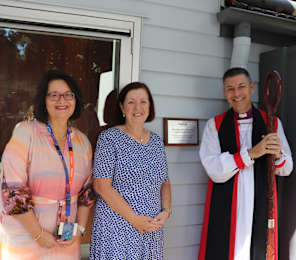The Christian charity has launched a bold national campaign committing to supporting the increasingly complex care needs of older Australians, such as chronic health conditions, increasing rates of dementia, and palliative care.
Andrew Thorburn, CEO of HammondCare, said the provider, which was founded in 1932, aims to be a national leader in complex care, specialising in dementia and palliative care.
 HammondCare’s ambition is to develop integrated, innovative models of care and expand beyond its home base of NSW. Success will hinge on creating the right built environments to support complex care, alongside plans to establish a research and innovation centre focused on developing and applying new care models. The strategy also includes building strategic partnerships and investing in advisory capabilities.
HammondCare’s ambition is to develop integrated, innovative models of care and expand beyond its home base of NSW. Success will hinge on creating the right built environments to support complex care, alongside plans to establish a research and innovation centre focused on developing and applying new care models. The strategy also includes building strategic partnerships and investing in advisory capabilities.
“We want to say that HammondCare is the place to come to when care becomes difficult or complex," Andrew said.
HammondCare’s “We do” campaign was developed in-house and led by 30- and 60-second TV commercials featuring real members of its care team. Production was handled by Cadence Media.

The campaign is in line with Andrew's comments made earlier this year to SATURDAY, DCM Group's subscriber-only magazine for executives in the ageing sector, in which he said the provider wanted to tackle the more complex aspects of aged care and scale up their operations in these areas.

“We have some specialties that we think can scale through joint ventures and strategic partnerships, through acquisitions, through greenfield sites, through technology, through advisory channels like telehealth," he said at the time.
“Operators need what we have, which is the right expertise in dementia care, mental health and palliative care, so if we can package those services, we can help them."
More than half of all people entering residential care are arriving with a high care rating for daily living, cognition and behaviour, compared with one-third in 2013, an indicator of the growing complexity in residential aged care.










